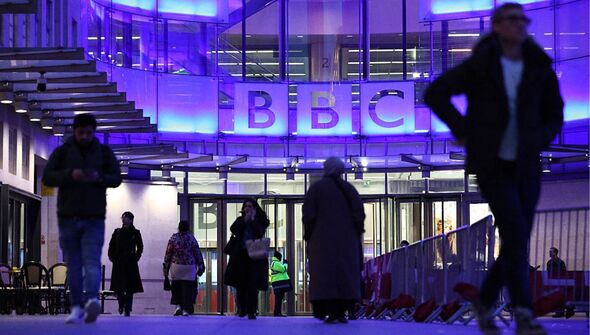Politics
BBC Faces Unprecedented Crisis Amid Calls for Principle Revisions

The British Broadcasting Corporation (BBC) is currently grappling with what many consider the most significant crisis in its history. Recent controversies have sparked debate over the relevance of its founding principles, which emphasize the need “to inform, educate, and entertain.” Critics now suggest a more fitting update could be “to deceive, ignore, and con.” The situation escalated following the controversial editing of a speech by former President Donald Trump, which involved two of its flagship programs.
This incident is not an isolated event; it is part of a larger pattern that has seen the BBC entangled in a series of missteps. According to Michael Prescott, a former independent advisor and whistleblower, the BBC has increasingly favored narratives that align with a perceived liberal agenda, particularly in sensitive areas such as LGBTQ+ and trans issues. Prescott pointed out that the network has amplified voices of individuals who have made anti-Semitic remarks, raising significant ethical questions about its editorial choices.
The BBC’s editorial decisions have drawn scrutiny, particularly regarding its Arabic Service, which has allowed individuals who have referred to Jewish people as “devils” to appear over 500 times. Critics have questioned whether similar language directed at other religious groups would ever be tolerated. This inconsistency has contributed to a growing perception of bias within the organization.
The challenges facing the BBC are not merely about individual incidents; they reflect a broader cultural crisis. Observers note that the corporation has shifted away from its roots, moving from the days of stalwarts like Bruce Forsyth and Jeremy Paxman to broadcasting controversial live events, such as chants of “Death to the IDF” at the Glastonbury Festival. This evolution has led to significant public discontent, particularly among those who feel marginalized by the BBC’s editorial slant.
The BBC’s relationship with the public has deteriorated, particularly since the Brexit vote in 2016. While the network aimed for balanced coverage during the lead-up to the referendum, internal reactions to the result revealed a disconnect. Many within the organization expressed disbelief and anger, leading to the perception that supporters of Brexit were viewed as xenophobic or out of touch.
This ongoing tension has resulted in a notable decline in public trust. In 2022 alone, approximately 300,000 people opted not to pay their TV licence fees, risking legal repercussions. As negotiations regarding the BBC’s funding are set to resume, calls for the abolition of the TV tax are likely to intensify following this latest controversy.
The BBC’s difficulties raise significant questions about its future direction. For those who grew up with cherished programs like “Listen with Mother” and “The Magic Roundabout,” the shift in the corporation’s approach is disheartening. The current crisis underscores a fundamental challenge: how can the BBC reconcile its historical mission with the changing landscape of public expectations and media accountability?
As the BBC faces mounting pressure, the urgency to address these issues becomes increasingly clear. The organization’s ability to adapt and respond to public concerns will be crucial in determining its relevance in an ever-evolving media environment.
-

 Entertainment3 months ago
Entertainment3 months agoAnn Ming Reflects on ITV’s ‘I Fought the Law’ Drama
-

 Entertainment4 months ago
Entertainment4 months agoKate Garraway Sells £2 Million Home Amid Financial Struggles
-

 Health2 months ago
Health2 months agoKatie Price Faces New Health Concerns After Cancer Symptoms Resurface
-

 Entertainment3 months ago
Entertainment3 months agoCoronation Street’s Carl Webster Faces Trouble with New Affairs
-

 Entertainment2 months ago
Entertainment2 months agoWhere is Tinder Swindler Simon Leviev? Latest Updates Revealed
-

 Entertainment4 months ago
Entertainment4 months agoKim Cattrall Posts Cryptic Message After HBO’s Sequel Cancellation
-

 Science4 weeks ago
Science4 weeks agoBrian Cox Addresses Claims of Alien Probe in 3I/ATLAS Discovery
-

 Entertainment4 months ago
Entertainment4 months agoMarkiplier Addresses AI Controversy During Livestream Response
-

 Entertainment2 months ago
Entertainment2 months agoOlivia Attwood Opens Up About Fallout with Former Best Friend
-

 Entertainment3 months ago
Entertainment3 months agoMasterChef Faces Turmoil as Tom Kerridge Withdraws from Hosting Role
-

 Entertainment4 months ago
Entertainment4 months agoSpeculation Surrounds Home and Away as Cast Departures Mount
-

 World2 months ago
World2 months agoCole Palmer’s Mysterious Message to Kobbie Mainoo Sparks Speculation




















